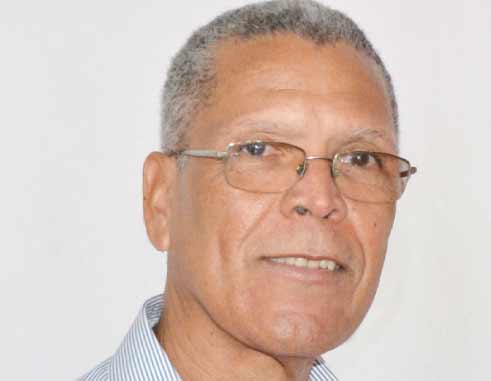 IT’S worse than we originally thought. Our economy, that is.
IT’S worse than we originally thought. Our economy, that is.
We had earlier come to the conclusion that the 2016-2017 Estimates of Expenditure were a work of fiction and had discussed this, but we had under-estimated the talent of the author. What we are now hearing is that the document omits information critical to a proper assessment of our expenses.
We’ve previously seen one example of this with the request by the Ministry of Education for EC$13m for school maintenance, but the budgetary allocation for this was EC$1m. Next, the Police require thirty new vehicles, but these have not been budgeted for. Then we hear that wages and salaries for the NICE and STEP programmes are not allocated where they would be expected, and that we have been borrowing money to pay for these programmes. And then, that the amount allocated for operation of the new hospital is inadequate.
What the new Minister in the Ministry of Finance tells us is scary though, which is that of our EC$3bn debt, some EC$1bn is short term and we live with the constant threat of a possible default in the servicing of that debt. He also indicated that the average interest rate on our debt is 6%, that the interest charges payable are not sustainable, and that the Government therefore hopes to convert some of this short term debt to longer term debt.
As the new government begins to unravel the intricacies of the Budget Estimates for 2016 – 2017 and attempts to negotiate its way through our looming debt crisis, it would be helpful as well if someone could explain to us what the item Overall Surplus/Deficit in the Budget Summary means. That Summary indicates that for 2014-2015 the country recorded an “Actual” Overall Deficit of EC$128.8m, but closer examination reveals that this does not reflect the repayment of Principal on our loans, a sum in the amount of EC$73.4m for that year.
Starting with the Budget Summary for 2014-2015, the format for reporting was changed and in addition to reporting “Total Expenditure”, the Summary now also reports “Total Expenditure (Excluding Amortization) in 2014-2015, and then “Total Expenditure Excluding Principal Repayments and Refunds” for the next two years. It is this second sum that is now being used to calculate the Overall Surplus/Deficit in the Budget Summaries, and while “Refunds” are captured in the statement of “Current Revenue”, Principal Repayments are not taken into account in the statement of Overall Surplus/Deficit.
Unless for some unknown reason we have taken a decision not to repay the Principal on our loans,
then the “Actual” Overall Deficit/Surplus for 2014-2015 is understated by EC$73.4m in the current Budget Summary (2016-2017). This means that instead of speaking of a Deficit of EC$128.8m for 2014-2015, we should instead be speaking of a Deficit of EC$202m. It also means that the “Actual” Overall Deficit for 2013-2014 was EC$269m and not EC$212m as stated.
We might want to note too that the Estimates for 2012-2013 showed a balanced budget, and accounted for repayment of principal on our loans, but the “Actual” 2012-2013 Expenditure, reported in the 2014-2015 Estimates, shows an understated Overall Deficit of EC$334m. Including repayment of Principal, the Overall Deficit for that year would have been EC$424m. This is movement from a balanced budget in the Estimates to a Deficit of EC$424m in one year.
And then, in the Estimates for 2015-2016, a new line item called “Financing Requirement” appears. It captures the repayment of Principal on our loans, as this item is the sum of our Overall Deficit and Principal Repayment. While we accept that Government may have to refinance its debt, how does this allow the Government to include the repayment of Principal in the line item for Total Expenditure, yet exclude that requirement from its statement of Overal Deficit in the Budget Summary, and present this to Parliament?
The issue of Constitutional reform is regularly discussed these days, and some like the idea of enabling a recall of elected Parliamentarians, but that will prove difficult unless we also change our electoral system. If a common-sense explanation for the above cannot be provided by those who are in the know, then we might want to consider whether or not a Prime Minister should be made criminally liable for misleading information provided to the country. This idea is not as far-fetched as it sounds, as the President of Brazil has recently been removed from office for just this “cooking of the books”.
So we congratulate our new Prime Minister on the approach taken to managing the economy, firstly on the appointment of a trained professional to be a Minister in the Ministry of Finance, but more importantly on the invitation of the Caribbean Development Bank and the Eastern Caribbean Central Bank to undertake an assessment of the state of our affairs, and to provide guidance on the way forward. That independent assessment removes the question of political interpretation, and allows us to come to rational conclusions on the condition in which we find ourselves.
What the CDB report tells us is that our “public finances are on an unsustainable path”. It also points out that we have inadequate “Primary Balances”, and that as a result of this, it will be difficult to bring the Debt to GDP ratio down to a manageable level. That Primary Balance is what’s left after we pay our bills, but before we pay the interest and principal on our loans.
This picture that the CDB paints of our economy is markedly different to what we had been hearing a little over four months ago, before the general elections. Back then we were being told that the previous Government had rescued the country from the clutches of the IMF and had brought us back to a position of growth in the economy. While the economy has shown some growth, we now know that such growth was disconnected from the Government’s management of the economy as our public finances remain on an unsustainable path.
And to add insult to injury, the country was all set to embark on a spending spree. When faced with the suggestion that former Commissioner of Police Francois had been offered an exorbitant sum as an inducement to proceed on retirement, here was former Prime Minister Anthony’s response as reported in the media: “Five million dollars is astronomical. I have roads to build and things to do”. And here’s a look at some of those things: Doubling the Choc to Gros-Islet carriageway – EC$150m; new offices for the Prime Minister; new government offices downtown Castries; new administrative offices in Vieux Fort – EC$64m; new St. Jude hospital – $120m; new Castries to Dennery highway; new Judicial Complex; new Cultural Center, new … .
Megalomania. Here is the Cambridge online dictionary definition of that word: “An unnaturally strong wish for power and control, or the belief that you are very much more important and powerful than you really are. And from the Oxford online dictionary: a “delusion about one’s own power or importance (typically as a symptom of manic or paranoid disorder)”.
Megalomania is a disease that has been known to afflict more than just one Prime Minister, but, much as former Prime Minister Sir John Compton has been maligned in the public eye, he has yet to be accused of having caught it.
Troublingly, this disease does not only afflict Prime Ministers, as politicians in general are particularly prone to being struck down by it. As a country, we must therefore remain vigilant and provide remedy to our politicians at the first suspicion of this “maladie”. We may not be able to cure them, but hopefully we can rid ourselves of those afflicted by this megalomania disease long before it shows itself in full bloom.














Sir may I suggest before you decide to take the role of fiscal economist to please learn something about the budgetary process I am sure the individuals in the ministry would happily assist. Because resources are scarce everyday the ministry has to make about choices. People want everything funded but want zero vat, their want low tax high expenditure and no borrowing. Sorry that Allen will find out that the world does not work that way. Do yourself a favour can you get your hands on the Cdb report and compare to the last three budget statements and please write what you found different. In Saint Lucia everyone is an economist and fiscal expert.
Why wasn’t this commentary written when then PM Anthony took to the airwaves to describe the dire financial situation and the need for salary freezes and salary cuts in the civil service. He was crucified and vilified. Then he capitulated and sang what he thought St Lucians wanted to hear, likely knowing it wasn’t true and planned for his exit at the expense of his party. Ridiculous that you are only now investigating.
….what is a piñata without candy?…….you guessed it;…the St.Lucia Treasury!…..see, chef Antonio and sous chef polyester J. Pierre have been cooking the with so much smoke and mirrors, that Houdini would be confused!….
……s/b: cooking the BOOKS!!…